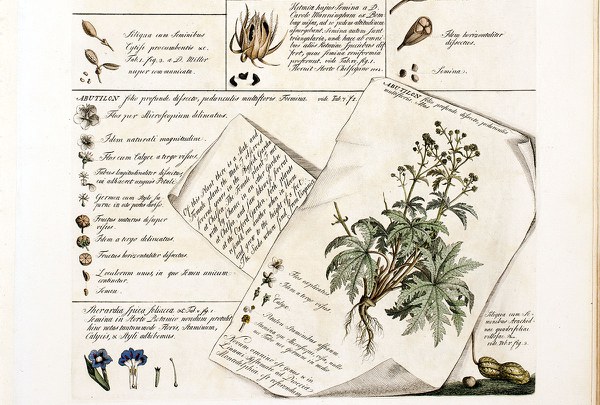Organizers: Yota Batsaki and Anatole Tchikine
The relationship between plants and people is deep, complex, and asymmetrical. Plants are indispensable to our bodily needs—food, shelter, clothing, medicine—and weave themselves into our experience through ritual, religion, and art. Yet anthropogenic change threatens two out of five plant species with extinction. These pressing environmental challenges make an urgent call for a new dialogue between humanities and science to point us to vital future directions for scholarship and action.
This conference is a capstone event of the Plant Humanities Initiative at Dumbarton Oaks, funded by the Andrew W. Mellon Foundation. It brings together distinguished thinkers and emerging scholars who research and communicate the fundamental importance of plants to human cultures. Beginning with an afternoon roundtable on September 15 and continuing over two days of presentations and discussions, the conference will take place at Dumbarton Oaks, in Washington, DC. The event will be open to the public and will also be livestreamed.
Thursday, September 15
Roundtable
- Felix Driver, Royal Holloway University of London
- Ned Friedman, Arnold Arboretum
- Jessica B. Harris, Queens College
- Robin Wall Kimmerer, SUNY Environmental Science and Forestry
- Londa Schiebinger, Stanford University
- Yota Batsaki, Dumbarton Oaks (moderator)
Friday, September 16
Panel 1: Food and Medicine Cultures
- “Furtive Seeds: Africa's Plant Legacies in the Atlantic World”
Judith Carney, University of California Los Angeles - "Find your sustainers": Native plant, seed, and food reclamation”
Elizabeth Hoover, University of California Berkeley - “The Veggie Officials -- Perspectives on Plants and the Politics of Virtuous Eating in Premodern China”
Miranda Brown, University of Michigan - Anatole Tchikine, Dumbarton Oaks (Moderator)
Panel 2: Legacies of Colonialism and Resilience
- “The Visible Hand: Coconuts, Capital, and Racial Colonialism”
Jayson Porter, Brown University - “Collecting ‘Queer’ Specimens: Recovering Indigenous and Asian Voices from Science Archives”
Ashanti Shih, Vassar College - “Plants, Purity, and Power”
Rosalyn LaPier, University of Montana - John Beardsley, The Cultural Landscape Foundation (moderator)
Saturday, September 17
Panel 3: Aesthetics, Ethics, and Spirituality
- “The nature into fragrances: plants, perfumed oils and ceremonies in the ancient Aegean and the eastern Mediterranean”
John Fappas, Museum of Cycladic Art, Athens - “A Hundred Years of Abyakta: The Forgotten Legacy of Jagadish Chandra Bose”
Sumana Roy, Ashoka University - Temitayo Ogunbiyi, artist
- Diana Sorensen, Harvard University (moderator)
Panel 4: Environment and Biodiversity
- “Biodiversity Exploration, Species Discovery, and New Technologies: Plant Humanities in a Rapidly Changing World”
W. John Kress, Smithsonian’s National Museum of Natural History - “Blowout Beardtongue: The glitch in conservation management”
Rosetta Elkin, Pratt Institute - “What plant humanities can do to curb the extinction of ecological interactions among humans, plants & their mutualists”
Gary Paul Nabhan, University of Arizona - John McNeill, Georgetown University (moderator)
Closing remarks
- Peter Crane, Oak Spring Garden Foundation
- Romita Ray, Syracuse University
- Yota Batsaki, Dumbarton Oaks

